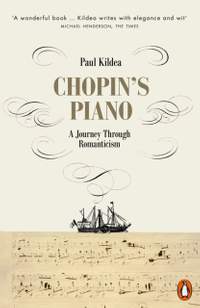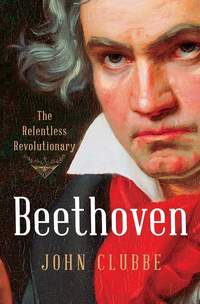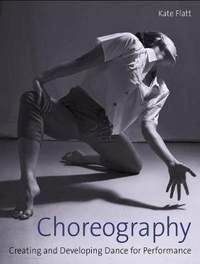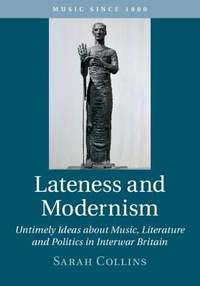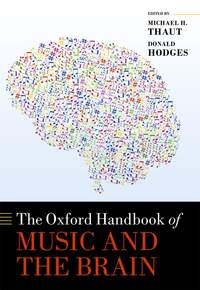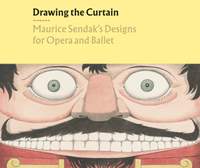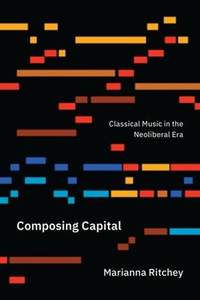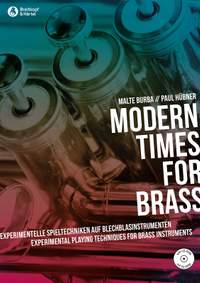New Publications,
New Music Book Publications - 5th August 2019
 Welcome to our latest selection of new music books. Our picks this time round include reflections on the life of a musician from pianist Stephen Hough; the history of Chopin's 24 Preludes traced through the instruments on which they were played; a discussion of Beethoven's role as a lifelong revolutionary; an introduction to dance choreography; an examination of music in postwar Berlin; a compendium of experimental performing techniques for brass instruments; a handbook of research into the effect of music on the brain; and a collection of photographs of David Bowie by iconic photographer Terry O'Neill.
Welcome to our latest selection of new music books. Our picks this time round include reflections on the life of a musician from pianist Stephen Hough; the history of Chopin's 24 Preludes traced through the instruments on which they were played; a discussion of Beethoven's role as a lifelong revolutionary; an introduction to dance choreography; an examination of music in postwar Berlin; a compendium of experimental performing techniques for brass instruments; a handbook of research into the effect of music on the brain; and a collection of photographs of David Bowie by iconic photographer Terry O'Neill.
In November 1838, Frederic Chopin sailed to Majorca with George Sand and her children, settling in an abandoned monastery, where he finished his 24 Preludes. There was scarcely a decent piano on the island so Chopin worked on a small pianino made by a local craftsman. New in paperback, this book traces the history of the Preludes through the instruments on which they were played, the pianists who interpreted them and the traditions they came to represent, beginning and ending with the Majorcan pianino.
Available Format: Book
Beethoven imbibed Enlightenment and revolutionary ideas in Bonn where they were fervently discussed in cafes and at the university. Through Beethoven's letters, portraits and other personal papers, and by setting him alongside the major artists of the time, John Clubbe illuminates Beethoven's role as a lifelong revolutionary.
Available Format: Book
By exploring the essential artistic and practical skills of the choreographer, this book offers unique insights for apprentice dance makers. The chapters cover key areas including stage geometry and atmosphere, movement as dance in time and space, group choreography, and structure and the 'choreographic eye'. This is an ideal companion for dancers and students wanting to develop their skills to effectively articulate them in performance.
Available Format: Book
Lateness and Modernism: Untimely Ideas about Music, Literature and Politics in Interwar Britain
Sarah Collins; Cambridge University Press
In the aftermath of World War I, a sense of impasse and thwarted promise shaped the political and cultural spheres in Britain. Uncovering the work of composers including Peter Warlock and Kaikhosru Sorabji, Sarah Collins traces the shared tendencies of literary and musical modernisms in interwar Britain, and explores the political investments underpinning these tendencies, as well as the influence of English Nietzscheanism and related intellectual currents.
Available Format: Book
Rubble Music: Occupying the Ruins of Postwar Berlin, 1945-1950
Abby Anderton; Indiana University Press
Air raids during World War II reduced much of Berlin to rubble. Abby Anderton explores the classical music culture of post-war Berlin, analysing archival documents, period sources, and musical scores to identify the sound of civilian suffering after urban catastrophe, and revealing how rubble functioned as a literal, figurative, psychological, and sonic element by examining the resonances of trauma heard in the German musical repertoire after 1945.
Available Format: Book
The Oxford Handbook of Music and the Brain
Michael H. Thaut & Donald Hodges (editors); Oxford University Press
This study is a compendium of current research on music in the human brain, bringing together fifty-four authors from thirteen countries. Each chapter offers a thorough review of the current status of research literature as well as an examination of limitations of knowledge and suggestions for future advancement and research efforts.
Available Format: Book
Maurice Sendak is well-known for his acclaimed children's books, but he also designed a number of opera and ballet sets, among them Mozart's The Magic Flute, Janáček's The Cunning Little Vixen, and Tchaikovsky's The Nutcracker. This book brings together over 125 sketches, watercolors, and cardboard models. Essays discuss the importance of music to Sendak's work and the artworks that inspired his stage designs.
Available Format: Book
Composing Capital: Classical Music in the Neoliberal Era
Marianna Ritchey; University of Chicago Press
The patronage of classical music by a wealthy few is being replaced by that of marketing schemes, sponsored performances for tech firms, and global corporate partnerships, leading to new unions of classical music and contemporary capitalism. This book shows how the neoliberalisation of classical music has put it at the service of contemporary capitalism, blurring the line between creativity and entrepreneurship.
Available Format: Book
This compendium of experimental playing techniques for brass instruments has been written for composers as well as for interpreters. Exploring new areas of technique always means crossing boundaries, since conventional solutions are seldom satisfactory. The usual judgment of ‘right’ and ‘wrong’ ways to produce a tone interferes with the productivity and creativity necessary to make new musical and playing experiences possible.
Available Format: Book


